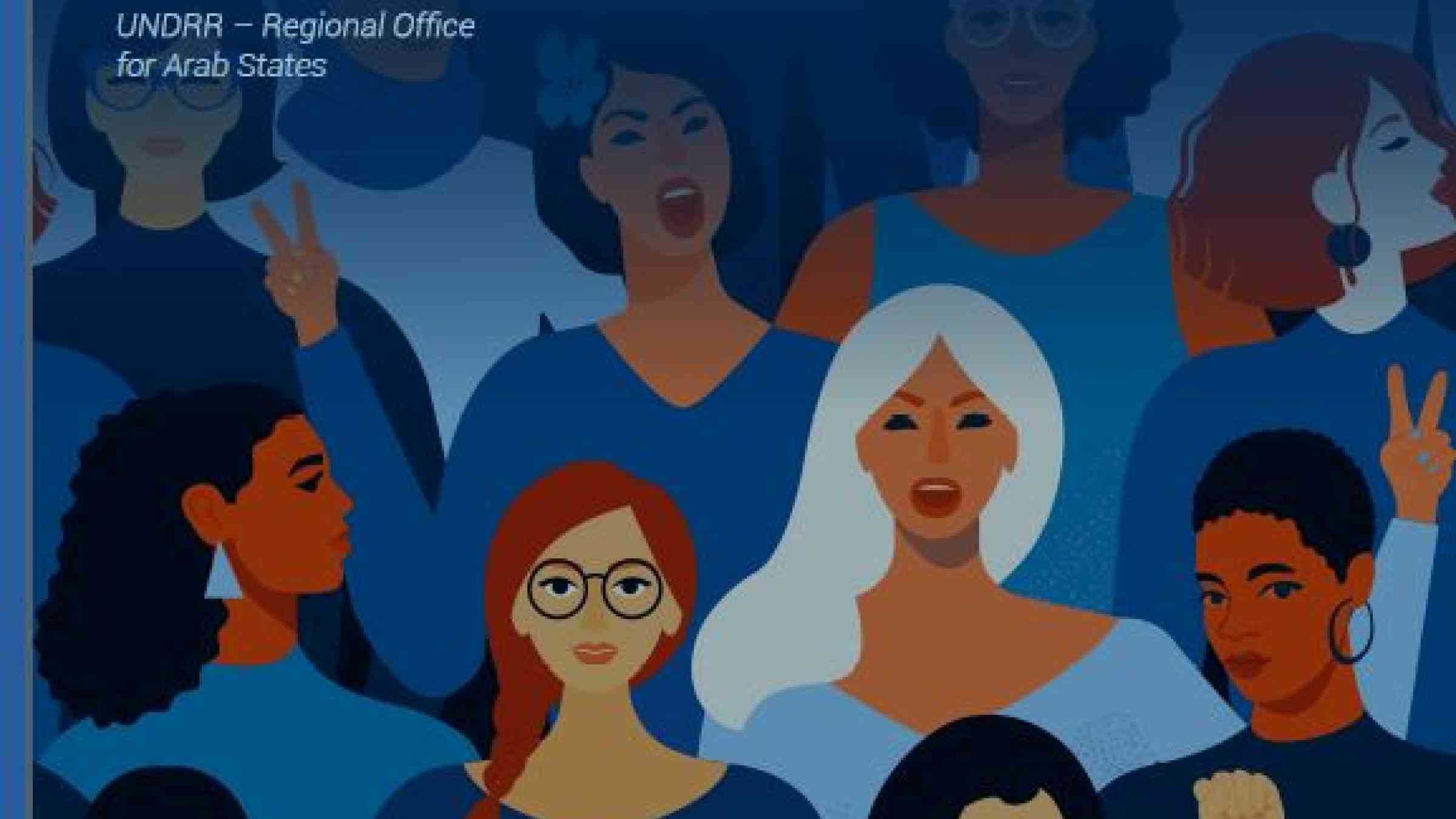Launch of Women's Leadership in Disaster Risk Reduction (Examples from the Arab States)

Venue: Virtual Webinar
https://undrr.zoom.us/s/87335586656?pwd=cVZYc1R0cUsyeWhOUDBvRzB6U1kydz09
Webinar ID: 873 3558 6656
- Arabic
Background:
Women, girls, boys, men, and people of diverse gender identities have distinct vulnerabilities in each context that shape the way that they experience and recover from disaster impacts. Effective disaster risk reduction requires meaningful and diverse participation, engagement, and leadership, through an inclusive and accessible, all-of-society approach.
Too often, gender is not considered when disaster prevention, response, preparedness, and resilience priorities are identified, and the specific needs and capacities of women and girls are often neglected as they are not included in the decision-making process. The disaster risk experienced by women can be further exacerbated by various forms of inequalities intersecting and influencing each other, for example, age, disability, ethnicity, class, migrant status, sexuality, etc. highlighting the need for intersectional gender analysis to inform DRR programming that is responsive to the specific needs and vulnerabilities individuals face. To better understand the gendered nature of disaster risk, it is vital that sex, age, and disability disaggregated data is collected and used to inform DRR decision-making.
The Sendai Framework recognizes the importance of integrating a gender perspective into all DRR policies and practices, and the need to empower women to publicly lead and promote gender-equitable and universally accessible response, recovery, rehabilitation, and reconstruction.
The United Nations Office for Disaster Risk Reduction (UNDRR), Regional Office for the Arab States (ROAS) developed the “Women’s Leadership in Disaster Risk Reduction: Examples from the Arab States,” the first of its kind in the Arab States region, a compilation of best practices drawing from documented experiences of mainstreaming gender in disaster risk reduction. The experiences are collected through desk review and consultation with experts. This publication is a result of contributions shared by participating national governments (Algeria, Iraq, Jordan, Lebanon, Mauritania, Somalia, State of Palestine, Tunisia, UAE, and Yemen) and institutional stakeholders, including the UN Women Regional Office for the Arab States, the Arab Water Council, FAO Regional Office for the Near East and North Africa, IOM Regional Office for the Middle East and North Africa, UN-Habitat State of Palestine, WFP Regional Bureau for the Middle East and Northern Africa, WFP Egypt Country Office, WFP Iraq Country Office, WFP Sudan Country Office, UNFPA Arab States Regional Office, UNDP Lebanon, Oxfam International, and Oxfam Mauritania.
To celebrate the launch of this publication, UNDRR is organizing a webinar in collaboration with the voluntary stakeholder group on gender equality and women’s empowerment (GEWE) that is co-chaired by UN Women and the Arab Water Council, and who technically contributed to the publication as well.
Objectives:
1. To present the highlights of the publication, particularly good practice case studies both in terms of progress and challenges
2. To share experiences on how Arab countries are mainstreaming gender into their respective policies and strategies
Time: 10:00 am to 12:00 pm Cairo time
Language: English & Arabic